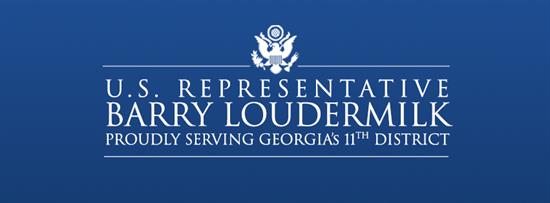Press Releases
Rep. Loudermilk Demands Answers from Biden DOJ About Unlawful Protests Outside Supreme Court Justices’ Homes
Washington,
May 12, 2022
Rep. Barry Loudermilk (R-GA) wrote a letter to Attorney General Merrick Garland regarding the Justice Department's inconsistent application of what constitutes harassment, intimidation and threats of violence as it pertains to protests at the home of a sitting Justice of the United States Supreme Court.
Text of the Letter: Dear Attorney General Garland, I write today deeply concerned and frustrated with the state of affairs at the Department of Justice regarding an apparent lack of response to protests at the home of a sitting Justice of the United States Supreme Court. The First Amendment right to peaceably assemble and to petition the government for a redress of grievances continues to be a cornerstone principle to a functional government, but I question the Department of Justice’s inaction and inability in this matter given your previous statements about harassment, intimidation, and threats of violence against government officials. The Supreme Court has previously held that the First Amendment is not absolute, and that reasonable time, place, and manner restrictions can be placed on speech. In Clark v. Community for Creative Non-Violence (1984), the Court held that time, place, and manner restrictions are permissible but must be “justified without reference to the content of the regulated speech,” “narrowly tailored to serve a significant governmental interest,” and “leave open ample alternative channels for communication of the information.” This could include use of amplified sound or restricting vehicular traffic. The Court later established a three-prong test in Ward v. Rock Against Racism (1989) that guides time, place, and manner restrictions and a government’s interest in maintaining order. 18 U.S.C. § 1507 is also relevant as it clearly prohibits picketing or parading “with the intent of interfering with, obstructing, or impeding the administration of justice, or with the intent of influencing any judge, juror, witness, or court officer, in the discharge of his duty.” Justices are clearly carrying out their duty when considering a petition before the Court. Using intimidating tactics or behaviors to influence a decision before the Supreme Court, the highest appellate court in the federal judiciary, is unacceptable and unlawful. I am concerned with the Department of Justice’s unequal application of what constitutes “harassment, intimidation and threats of violence” against government officials. In your memorandum of October 4, 2021, you correctly stated, “while spirited debate about policy matters is protected under our Constitution, that protection does not extend to threats of violence or efforts to intimidate individuals based on their views.” I hope that you would also believe Supreme Court justices should also “be able to do their work without fear for their safety” and that you take these threats as seriously as the ones you referenced in this memorandum. As the events in Madison, Wisconsin with the arson of the Wisconsin Family Action office make clear, threats can evolve into action. I hope you will take the proper actions to protect the activities of the Supreme Court. I ask that you respond to the following questions: 1) What actions are you taking to ensure protestors are not unduly harassing justices in their private residences? 2) What actions are you taking to stop protestors from using intimidating behavior to coerce justices into making a certain ruling in Dobbs v. Jackson Women’s Health Organization? 3) Is it the position of the Department that Justices of the Supreme Court are carrying out their duty, as referenced in 18 U.S.C. § 1507, when considering or ruling on an issue before them? Sincerely, Barry Loudermilk Member of Congress A PDF copy of the letter can be found HERE. |
